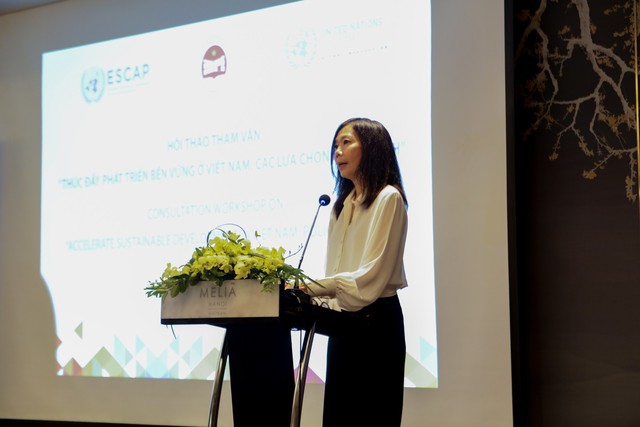At a consultation workshop on “Accelerating Sustainable Development in Vietnam: Policy Options”, which took place in Hanoi on December 14, UN Resident Coordinator for Vietnam Pauline Tamesis noted that the country has made great strides forward in improving living standards and lifting millions of people out of poverty, the Government News has reported.
The UN official was quoted as saying that building on these remarkable achievements, leaders in Vietnam have set a vision of becoming a high-income country by 2045 and reaching net-zero emissions by 2050.
This vision drives Vietnam’s commitment to achieve the 2030 Agenda for Sustainable Development and the Sustainable Development Goals (SDGs), she said.
The six policy priorities and recommendations outlined by Minister of Planning and Investment Nguyen Chi Dung at the High-Level Political Forum (HLPF) in July, she went on, including science, technology, and innovation; quality human resources development; efficient resource management, climate change adaptation and mitigation; the green and circular economy; finance; and data availability, with people at the center of every decision, policy, and action, are well aligned with the six SDG transitions agreed to by member states at the SDG Summit and envisioned to generate large multiplier effects across the SDGs to promote economic prosperity while protecting human and environmental wellbeing.
She said investment in renewable energy will propel GDP growth by 3 per cent while substantially reducing carbon dioxide emissions and pollution.
Meanwhile, investment in human capital and energy efficiency-focused infrastructure has positive economic and social effects in the long run, she said, adding that it drives GDP growth, reduces poverty and inequality, lessens carbon dioxide emissions and pollution, and improves the government’s fiscal space, because GDP growth outweighs an increase to government debt.
Investment in digital transformation has a positive effect on GDP growth, albeit relatively moderate, as well as on poverty reduction and inequality, she explained.
Investing in people and the environment yields significantly positive economic and social benefits in the long run, she said, while the pressure on the government’s fiscal space subside over time because the economic benefits outweigh the costs.
It also highlights the importance of mobilizing various sources of finance, including private capital, to invest in key development priorities.









 Google translate
Google translate